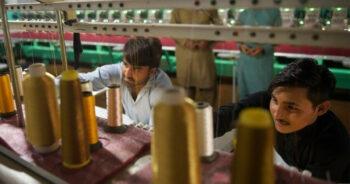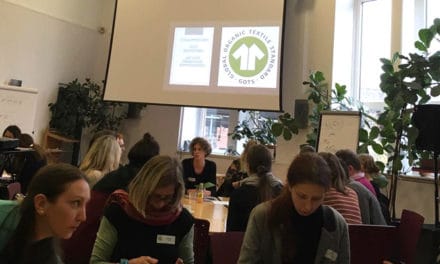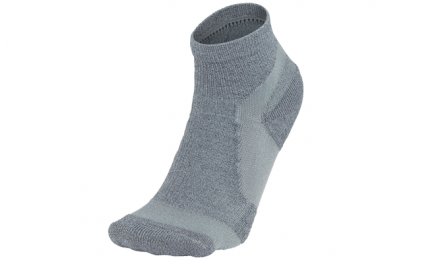 A restriction on letters of credit (LCs), natural gas and electricity shortages, unavailability of raw materials and long delays in refunds have brought the textile sector to the verge of collapse, exporters on Tuesday regretted. Exports of the entire textile sector nosedived by 29 percent or $487 million on a yearly basis in Feb 2023, comparing to those made in Feb 2022, Muhammad Javed Bilwani, Chairman, Pakistan Apparel Forum said.
A restriction on letters of credit (LCs), natural gas and electricity shortages, unavailability of raw materials and long delays in refunds have brought the textile sector to the verge of collapse, exporters on Tuesday regretted. Exports of the entire textile sector nosedived by 29 percent or $487 million on a yearly basis in Feb 2023, comparing to those made in Feb 2022, Muhammad Javed Bilwani, Chairman, Pakistan Apparel Forum said.
From July 2022 to Feb 2023, total textile exports plunged by 11 percent to $1.35 billion as against those made in the same period last fiscal year, which he attributed to the “anti-business” policies of the PDM rule. He said that the textile sector, which contributes 60 percent alone to the entire pool of national exports, still stands abandoned by the government.
“The Prime Minister has no time to meet the exporters as all scheduled meetings during last four months have been postponed,” he said and appealed to the premier to help the textile sector overcome its financial problems.
Exporters of the apparel textile are left highly disappointed with the highest ever soaring cost of manufacturing amid fragile economic outlook over the last eleven months, he said, adding that the unfavourable situation has also made operating the industrial units hard.
Regionally Competitive Energy Tariff regime, he said, the government had cancelled for the five zero rated export sectors. Gas prices have surged about 34.5 percent retrospectively from Rs819 to Rs1100 mmbtu with effect from Jan 2023, although the utility is unavailable for the Karachi’s industries, he added.
“The FBR’s FASTER system of Sales Tax Refunds has become dysfunctional and refund claims worth billions of rupees are stuck,” he said adding that government has also placed a bar on import of raw material and machinery, which further worsened the financial problems for exporters.
Under the circumstances, he said that the export-oriented industries are compelled to procure costly manufacturing inputs to run their industries, which subsequently scaled up output cost “exorbitantly”, leaving the entire sector “unviable”. DLTL under the Textile policy is suspended and Sales Tax refunds are “excessively” delayed, which he said, mounting liquidity crunch for the entire industrial chain in the country.
Inflation stands at 31.55 percent, Policy Discount Rate 20 percent, Export Financing rate 17 percent, he maintained that rupee-dollar parity has broken all records to 283. The poor economic conditions have left Pakistan’s exports costlier than its competing nations on the world markets since the rival countries offer their goods cheaper to the global buyers.
Citing global survey respondents for textile manufacturing countries in Asia, he said that India, China and Vietnam are the three top nations producing their goods at cheaper rates following Bangladesh at sixth place and Sri Lanka ranked 10th.
“Pakistan is missing in such recent survey owing to daily increasing cost of manufacturing amid instability in the local currency and economic indicators,” Bilwani added.
In a bid to help retain business ties with foreign buyers, he said that the textile exporters are compelled to strike their deals on a cost-to-cost basis.
“The gravity of situation demands the Government to support export oriented industries on war-footing,” he said and appealed to the prime minister to take an immediate notice of the highly aggravated situation and provide relief to exporters.





















